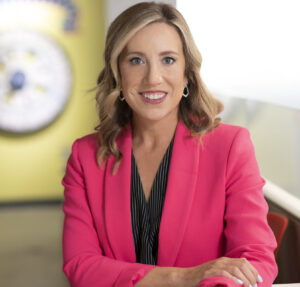How to pursue and prioritize mentoring amid COVID-19
As we remain holed up at home, now is the perfect time to invest in someone else. Here’s how to help boost a colleague’s career— and enhance your own.

There is a huge need for mentoring right now, but the continued menace of COVID-19 is making it more difficult to connect in meaningful ways.
Employees are fearing for their health, their jobs and long-term career prospects. Many are shouldering additional household and caregiving responsibilities, and we’re all enduring heightened levels of stress.
Mentors reinforce confidence by providing a calming presence during difficult times. They help younger workers hone their skills and provide guidance for career adjustments. They’re instrumental in developing the organization’s internal talent and future leaders. Mentors can also increase professional opportunities for women and people of color. Unfortunately, many organizations don’t prioritize this practice, and thus fail to reap the harvest of higher productivity, retention and morale that mentoring can yield.
The decline of mentoring during COVID-19
Mentoring has become more challenging while people work from home during the pandemic. Employees might attend online staff meetings, but they miss the more intimate interactions found only in physical offices.
What younger staff members learn from working next to more experienced peers all day, from peering over their shoulders, and from impromptu conversations cannot be replicated in Zoom meetings. While working in close quarters, mentors and mentees build strong relationships that are far more difficult to form when everyone’s working from home.
“For me, these types of experiences began when I landed my first PR agency job almost 30 years ago,” says Mickey Mandelbaum, a partner at Prosek Partners. “Every day at the office I’d watch how older colleagues courted and worked with clients and how they ran a meeting when trying to form a consensus.”
Capturing that same sense of camaraderie and conveying hard-earned wisdom via video is difficult and requires more intentional effort— but it’s not impossible.
Steps for mentoring
Leaders in communications and other related fields urge experienced managers to undertake a dedicated effort to mentor more novice personnel. They offer these recommendations:
Explain to younger workers what you’re doing, why you’re doing it, and how it all fits into the larger picture. After a call with a client, explain to mentees why you made your recommendations, why you chose to challenge or not challenge certain issues with clients, Mandelbaum says.
Offer advice for gaining new skills and completing career pivots. Be candid and transparent regarding areas of improvement that may sometimes go unsaid, write Colin Murray, Baker McKenzie CEO, and Anna Brown, Baker McKenzie director of global diversity & inclusion. “During these interactions, mentors should listen carefully, be prepared to assist with the unique challenges those who we are mentoring are experiencing and raise these concerns to those who can help,” they state in Bloomberg Law.
Remember the human and empathetic part of the mentoring relationship. Conduct “check-in” conversations to ask how young staffers are faring. Be especially mindful of those with families who are facing additional household and childcare tasks right now.
If you’re a manager or exec, take the pressure off as much as possible. For instance, let it be known that it’s fine if pets or children interrupt video meetings, says Ruth Gotian, assistant dean for mentoring and executive director of the Mentoring Academy at Weill Cornell Medicine.
When you’re mentoring someone, you might feel pressured to immediately give them advice. But not all feedback is helpful, and giving unhelpful — or unwelcome — feedback can be detrimental to your relationship, advises Lindsay Kolowich Cox at HubSpot. A good mentor knows how to determine if a situation lends itself to off-the-cuff or more thoughtful feedback.
Responsibilities of mentees
Novice PR, comms and marketing professionals can also strive to develop mentor-mentee relationships. Those just starting careers can ask to talk to experienced colleagues through phone calls or video conversations, which are much more personable than emails or texts, Mandelbaum says. A conversation could develop into a true mentor-mentee relationship.
Rather than passively accepting managers’ changes to their writing or other work, young professionals can learn more by asking why they made those changes, ideally through a phone call or video chat.
In a remote work environment, both mentor and mentee must be more determined in building the relationship and initiating supportive interaction. It takes commitment, and it’s not easy putting yourself out there, but a mentoring relationship is always a smart and noble use of time.
William Comcowich is CEO of Glean.info, a media monitoring service.






